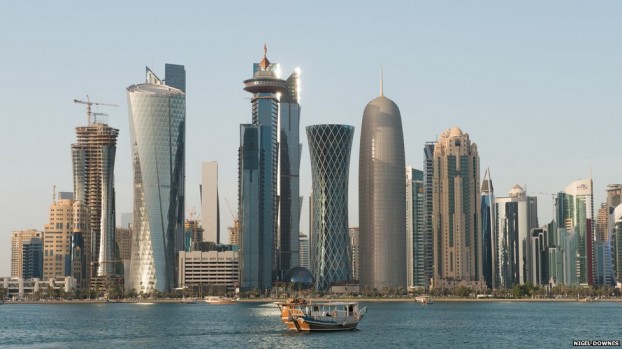Many people are now taking advantage of the robust economic conditions, attractive investment climate, higher wages and better quality of life in Qatar and relocating there. However, making the move to set up a new life abroad is a huge decision to make. If you’re planning to join the many expatriates living in Qatar, you must consider not only the psychological factors but also be financially prepared. Here’s a brief look at the financial side of relocating to Qatar.

Buying or leasing property
Those who are not on full expatriate package may have to rent or buy a property. A foreigner who holds a Qatari visa is allowed to purchase freehold properties in certain designated developments but the process is done via leasehold from the property owner, on a 99-year renewable basis. If you don’t have the money to cover loan the costs upfront, both national and global banks in the country offer personal loans in Qatar for expatriates who want to get on the property ladder. These are often divided into housing loans and more specific free hold housing loans, for those who are interested in leasing from desirable ex-pat areas like the Pearl Lagoon real estate.
Cost of living in Qatar
Many expats are enticed to Qatar by the prospect of a high, tax-free salary, but it’s important to find out about the cost of living before relocating.
While petrol is very cheap in Qatar, Doha News reported that the cost of living in Qatar is projected to rise in 2013 as more expatriates relocate to the country. Even though rental prices have fallen since 2009, population growth will lead to a rise in demand for and affect the availability of housing. Rent is forecast to rise due to the high demand.
90% of food is imported into Qatar, so weekly eating can be expensive as a result. Travel is also something to account for in your budget, as flights back to the UK cost upwards of £700, although some companies will give you a free return flight home every year.
Savings
Due to these potential living costs, ensure that you have sufficient funds to cover yourself. Depending on your job and family circumstances, you should have adequate savings of at least eight to twelve months. You can save your money with an international bank that has a presence in Qatar prior to departure. Some even offer additional benefits such as free international transfers or a free mobile phone and local sim card when you arrive. Make sure you check the exchange rate and cost of transfer between accounts. International banks in Qatar offer savings accounts in Qatari riyal, sterling pound, US dollars and Euro.
Education and Healthcare
If you are moving with a family, be aware that it may cost a fair amount to send your children to a school with a curriculum from your home country. For instance, if you’re from the UK, it can be the equivalent of about £5,000 for your kids to take the British curriculum in Qatar. However, many expat packages include an allowance for education fees, so it’s a good idea to check this before you go.
Fortunately, healthcare in Qatar is free for expats if you register with the Hamad Medical Corporation, although the waiting times and resources can be strained. This means some choose private insurance, but again, check with your employers as there is currently a scheme pending in which companies will have to provide free health insurance to all employees.























